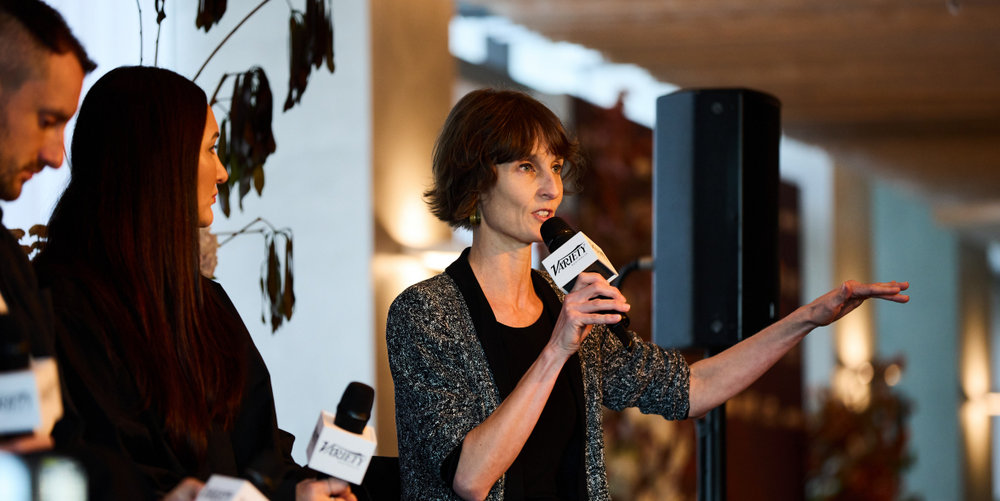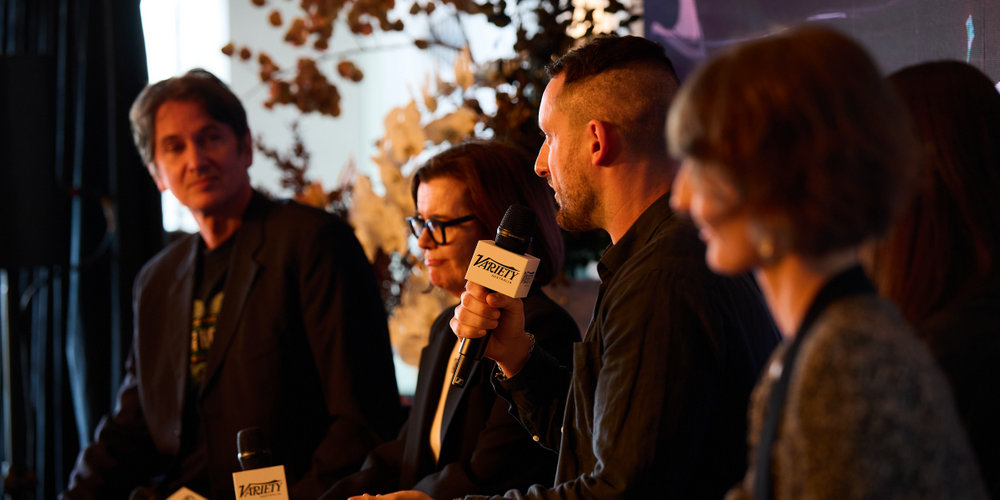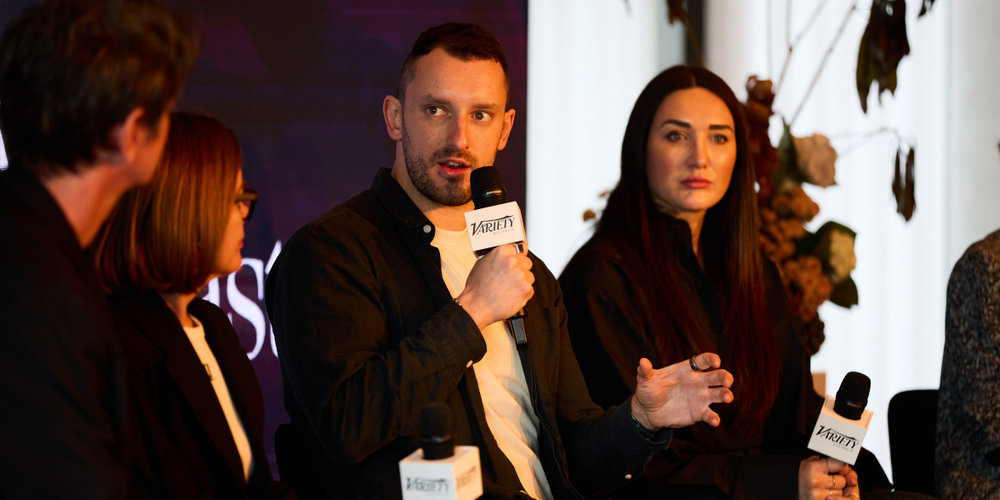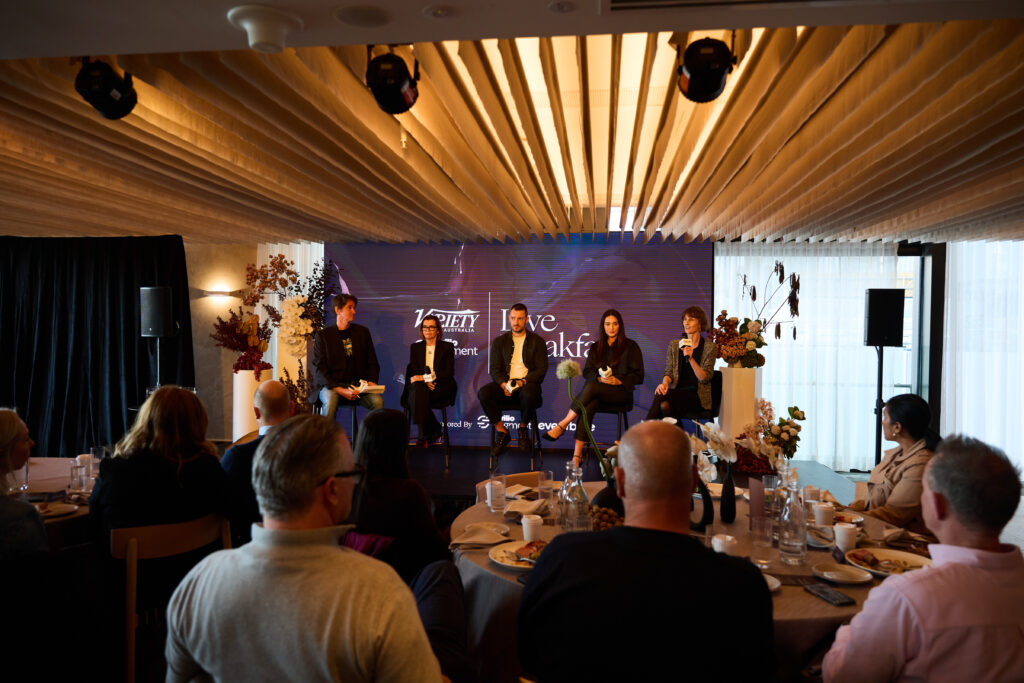‘A 5-year Transitional Cycle of Change’: Music Festivals Under the Microscope

Bushfires, floods, overzealous cops, sniffer dogs and a multi-speed economy. The myriad challenges facing Australia’s festival-land are as deep and complex as any small-stage lineup.
Not every fest will survive; those that do will be built to succeed.
The nation’s vibrant (and troubled) festivals industry was dissected by a panel of music industry experts for the inaugural Variety Live Business Breakfast in central Sydney, presented with Twilio.
“We’re in a probably a five-year transitional cycle of change,” explained Evelyn Richardson, the outgoing CEO of Live Performance Australia. “I’m optimistic that we’ll see new festivals emerge.”

Dr Christen Cornell speaks at Variety’s Live Business Breakfast.
The operating costs are “just so severe,” she continued, with some touring shows reporting costs of 30% up to 70%. “To sustain the industry, when we talk with government, anything that reduces those operational costs is going be important. And I think governments, particularly state governments, can do stuff in terms of the venues that they own, the user, policing, medical and all of the services that they provide,” she added. “Anything they can do today to reduce those costs. That’s something practical that they can do.”
Acquiring insurance is a “major issue,” noted Richardson. “It’s clearly market failure.”
The landmark Soundcheck report mapped Australia’s festivals market and found operational costs remain the biggest barriers to organisers. Also, noted Dr Christen Cornell, research fellow and manager, research partnerships at Creative Australia, which presented the report in April, the study found that the main ticket-buying demographic of 18-24 had aged to 25-29, and that “ticket-buying behaviours had changed, so people are buying later.”

.
Every state has its nuances, and difference approaches. “We do not run any music festivals here in the state of New South Wales,” explained Michael Christidis, co-founder of Melbourne-based Untitled Group, which reported more than 500,000 ticket sales across its suite of events during the latest summer season, including best-ever results for its Beyond The Valley and Wildlands brands.
Music festivals in NSW, particularly electronic-focused events, had been demonized in the past — sometimes with a presence of police appearing to outnumber punters. “This isn’t just an isolated thing,” he said. “It’s been a residual build up over time.”
View this post on Instagram
The collapse of several festivals earlier this year, including the cancellation of Splendour in the Grass, was a gut-punch for the live business and punters.
“There will be some casualties,” explained Christidis, whose company collected the inaugural live business award on the day.
“For us, it’s about going what’s working. Let’s double down on that. Let’s know our audience and let’s double down on delivering what they want to at the same time without cannibalizing.”

Untitled Group’s Michael Christidis.
Linda Scott, Eventbrite’s commercial director, APAC, predicted an emergence of single-day festivals. “The proof will be in what the people want, and those that listen to that and adapt, will be super-successful.”
Seven awards were presented during the function, with Bluesfest taking out festival of the year. The road ahead will be filled with new ideas, and genre-specific events, Richardson enthused.
“The entertainment industry is now moving through a massive transition and period of change with major disruption,” she explained. “I think the death of music festivals is highly over-egged.”

.
The upside? “Not all festivals are falling over. Clearly audiences are changing and I think probably the biggest challenge for entertainment right now is that we don’t really know our audiences, and how they’re changing?”
Stream the discussion in full below at the Variety Australia Podcast on Spotify.






























